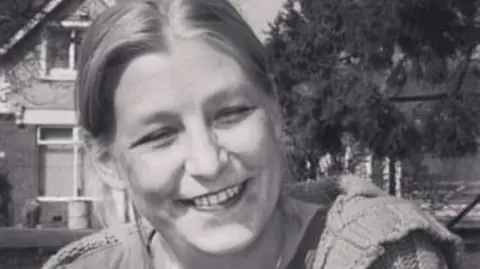Ex-spy Skripal was a 'sitting duck', inquiry told
Former Russian spy Sergei Skripal and his daughter were "sitting ducks" because of a lack of home security, the Dawn Sturgess inquiry has been told.
They were poisoned with nerve agent Novichok after it was put on the front door of their home in Salisbury, months before Ms Sturgess died after being exposed to it.
Michael Mansfield told the inquiry into her death the Russian state had "alarming access" to Mr Skripal's location.
In closing statements to the public part of the inquiry, he accused the UK government of an "abject failure" to keep people safe.
Mr Mansfield said the attempted assassinations of Sergei and Yulia Skripal were "preventable".
There were no security measures at Mr Skripal's home, and he used his landline to discuss his movements, said Mr Mansfield.

"The movements of the Skripals plus the accessibility of the premises - they're sitting ducks," he said.
"This should have been foreseen by those responsible for their protection and the public's protection."
The Skripals were targeted by Russian agents in a plot the inquiry was told would have been authorised by President Vladimir Putin.
Ms Sturgess, 44, died in 2018 after she was exposed to the nerve agent, which was left in a discarded perfume bottle.
Alexander Petrov and Ruslan Boshirov, both identified as Russian military intelligence officers (GRU) by the inquiry, have previously denied involvement.
Adam Straw KC, part of the legal team for Ms Sturgess' family, told the inquiry on Monday the disposal of the Novichok had been an "extremely dangerous act" which was "brought about" by Russian officials - including Putin.
Mr Straw added the act was an "unlawful killing".
"One person did in fact die, several were seriously ill and a total of 87 members of the public presented to the hospital emergency department as a result of the Novichok," he said.
'Severely inadequate'
Mr Mansfield told the inquiry: "We say, in this instance, there has been an abject failure by the United Kingdom Government to protect the United Kingdom public."
Jesse Nicholls, also representing Ms Sturgess' family, said the response to the attacks by Wiltshire Police had been "severely inadequate", he added.
"Aspects of the response failed the family badly – causing them significant pain and leaving lasting damage," he said.
"The family feel equally strongly that these failures should be recognised."
Mr Nicholls added: "The family have listened to the evidence and they consider that the police response was blighted by arrogance, stereotyping and a lack of professionalism.
"Multiple Wiltshire Police officers dismissed the clear and correct assessment from qualified paramedics who identified that [Ms Sturgess' boyfriend] Charlie was suffering from nerve agent poisoning.
"In acting in that way, they put other first responders and the public at grave risk – and their actions could have cost Dawn and Charlie their lives.
"Officers' failings were then compounded by a serious failure to provide Dawn's doctors with accurate information.
"The police response has caused unjustified and lasting damage to Dawn, her reputation, and to her family."
Police 'will learn'
At the end of the public stage of the inquiry, Wiltshire Police Chief Constable Catherine Roper reiterated the force's "collective condolences" to Dawn Sturgess' family and friends.
"Today, her family have clearly set out their disappointments with the initial police response to Dawn and Charlie falling unwell," she added in a statement.
"In particular, the family raised their concerns about Dawn wrongly being described in police documents as a known drug user.
"This should never have happened.
"It is crucial, in terms of constantly improving the service our communities receive, that we ensure we are actively learning from each incident we attend."
She said that during the hearing into Ms Sturgess' death, police had "captured every opportunity" to learn lessons.
"It is crucial that we remain open to constantly developing our approach to those incidents which pose the most significant threats to the safety of the public," she added.
Follow BBC Wiltshire on Facebook, X and Instagram. Send your story ideas to us on email or via WhatsApp on 0800 313 4630.
